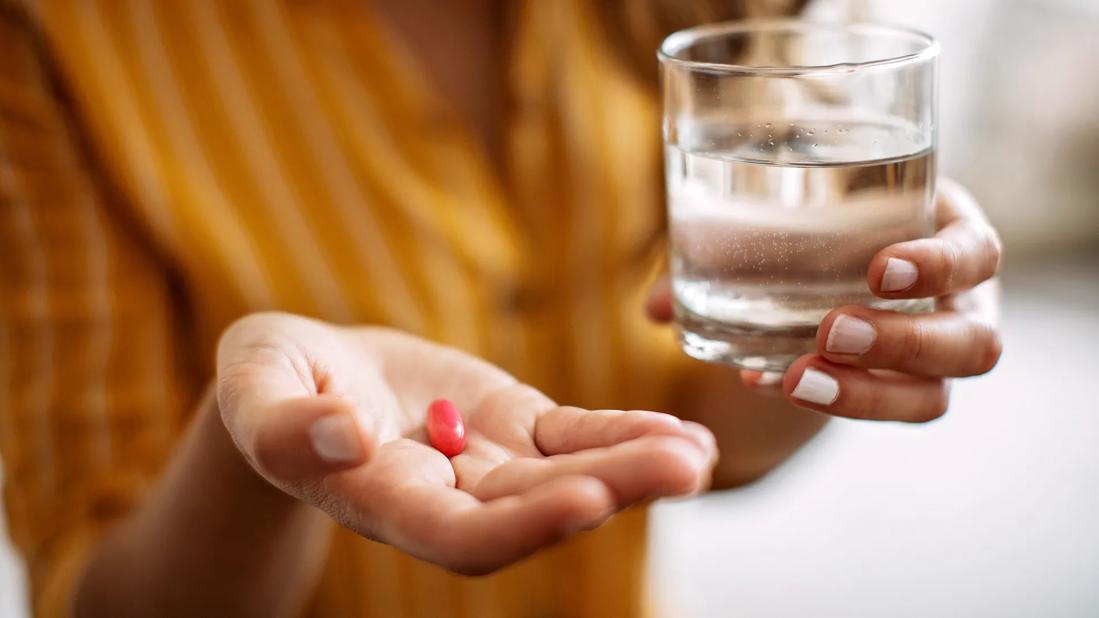Magnesium Supplements for Period Cramps: Do They Help?
The research isn’t clear, but it’s safe to try this essential mineral for relief

Not everyone experiences cramps with their periods (lucky!). But for many women, cramp pain can range from mild to debilitating. If you’re badly impacted, you’re probably willing to try almost anything to get some relief.
So, you might be wondering: Can a magnesium supplement keep menstrual cramp pain at bay?
Ob/Gyn Salena Zanotti, MD, weighs in on whether magnesium is worth a try.
Does taking magnesium help with period cramps?
Yes, magnesium can help with period cramps, although the effect may be small.
“There aren’t any large studies looking at magnesium for cramps,” notes Dr. Zanotti. “Some small studies say it doesn’t do anything, and others say it might help a little. It doesn’t hurt to try magnesium to see if it works for you.”
How does magnesium help with period cramps?
Magnesium can help with cramps by reducing:
- Cramp intensity.It does this by relaxing the muscles of the uterus.
- Pain.Magnesium decreases the production of prostaglandin, chemicals in your body that cause pain.
“The uterus is a muscle. During your period, the muscle contracts (tightens) to get the menstrual blood out,” explains Dr. Zanotti. “You feel the muscle contracting, and that’s what the cramp is — just like a cramp in any other area of the body.” Menstrual cramps are actually mini contractions like those that occur during childbirth.
Which type of magnesium is best for period cramps?
Magnesium is an essential mineral your body uses in many different biological processes. You can find different types of magnesium supplements at the pharmacy.
“Magnesium glycinate is the best type for cramps. It gets absorbed better and can be a little more effective,” advises Dr. Zanotti. “It’s also better tolerated in terms of potential gastrointestinal (GI) upset.” Other common magnesium supplements include magnesium citrate and magnesium oxide, but they’re not the top choices for period pain.
How much magnesium should you take for cramps?
“We don’t have large studies to support specific amounts of magnesium to take for cramps,” reiterates Dr. Zanotti. But small studies use 150 to 300 milligrams of magnesium per day, so an amount in this range is a good daily dosage to aim for.
The recommended daily allowance (RDA) of magnesium for women is 320 milligrams. Many foods contain magnesium, but people in the U.S. typically don’t get enough through diet alone.
According to one study, you may get more relief with magnesium plus vitamin B6 compared with magnesium alone or a placebo. Participants in this study took 250 milligrams of magnesium with 40 milligrams of vitamin B6.
What other ways does magnesium help ease your period?
Magnesium may help you sleep better and ease tension in general, which can be helpful during your period. However, magnesium doesn’t affect actual blood flow, so it’s not a remedy for heavy periods.
What are the downsides of taking magnesium for menstrual cramps?
Dr. Zanotti says that magnesium is a low-risk vitamin. The most common side effects are typically mild and GI-related — things like diarrhea, nausea and vomiting.
If you have any side effects, you can try a lower dose. “If you stay on the lower end of dosing, closer to 150 milligrams, you’ll probably be fine,” says Dr. Zanotti.
You can also combine magnesium with other ways to get rid of period cramps, like over-the-counter medications and heat.
When to see a provider for menstrual cramps
What if you’ve tried magnesium and other home remedies, but your cramps are still really bad?
“If you’re missing school or work or can’t do the things you want to do because of cramps, it’s time to see your provider,” urges Dr. Zanotti. “You may need a prescription-strength pain reliever.”
Some types of birth control can also reduce menstrual cramps, including:
Your provider may also want to screen for certain conditions that contribute to severe cramps:
- Adenomyosis develops when uterine lining tissue grows into the uterine wall and can cause painful periods.
- Endometriosis is when uterine tissue grows in areas of the body outside the uterus.
- Ovarian cysts are growths on your ovaries that may cause pain but are typically not cancerous.
- Pelvic inflammatory disease is caused by an infection in the reproductive organs that causes inflammation and pain.
With the help of your provider, you can rule out conditions that may need further treatment and get the relief you need from period cramps.